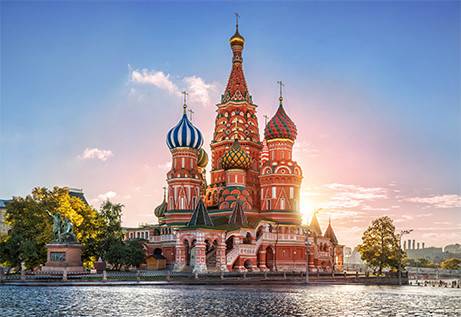The war economy that has financed Russia’s full-scale invasion of Ukraine for 45 months has relied heavily on revenues from oil and gas exports — as well as what critics call Western complacency — and on China and India’s reluctance to fully cut off Russian energy imports.
Now, however, the United States — together with the European Union and the United Kingdom — is targeting Russia’s largest oil and gas companies and their vast web of subsidiaries and affiliates.
On October 22, the US Treasury announced sanctions on state-owned Rosneft and privately held Lukoil, Russia’s two biggest oil producers, whose exports have been a key source of funding for the Kremlin.
A day later, the EU imposed its own sanctions on Rosneft and Gazprom Neft, a major oil arm of gas giant Gazprom.
President Donald Trump said from the White House on October 22 that the sanctions were “very significant — they target their two main companies,” calling them “massive.”
Will these sanctions work?
The short answer: not immediately.
Alexandra Prokopenko, a former adviser at the Russian central bank and a fellow at the Carnegie Russia Eurasia Center in Berlin, said, “I think the short-term impact of these sanctions will be limited. Both companies were likely preparing for this in advance. A large share of their oil exports is already priced in yuan and rubles, so I don’t expect a dramatic effect on the budget.”
Maria Shagina of the International Institute for Strategic Studies in Berlin called the measures the first truly consequential steps taken by the Trump administration, reflecting frustration with what she described as Russia’s “foot-dragging” on efforts to scale back or end the war in Ukraine.
But she added: “It remains to be seen how serious the Trump administration is about enforcing them.”
The US announcement delayed implementation for one month — until November 21. “More importantly,” Shagina noted, “it’s unclear whether the Treasury will take an extraterritorial approach and target Chinese and Indian entities, including banks, through secondary sanctions.”
Jennifer Kavanagh, a senior fellow at the Defense Priorities think tank in Washington, expressed doubt that the measures would significantly affect the war: “For Putin, this war is existential. He’s already shown he’s willing to pay an enormous price — in both Russian lives and economic costs. This latest round of sanctions won’t change his calculus.”
The China (and India) factor
Since the February 2022 invasion, the West has tried to strangle Moscow with sweeping sanctions, making Russia the most heavily sanctioned nation on Earth.
Yet its economy has defied Western predictions of collapse — avoiding a total fiscal breakdown, ruble crash, or runaway inflation.
While growth has slowed, this is largely due to domestic policy decisions such as interest-rate hikes by the central bank to contain inflation. The Kremlin has also raised taxes to preserve revenue streams.
At the same time, Moscow has shown no sign of scaling back its wartime spending despite massive human losses.
Western sanctions have proven more porous and less effective than anticipated, allowing Russia to continue selling oil and gas to eager buyers in China, India, Turkey, and elsewhere.
According to the International Energy Agency, Russia earned $13.35 billion from crude and fuel exports in September — down sharply from July — mainly due to Ukrainian drone attacks on refineries and pipelines that cut refining capacity by as much as 30%.
European loopholes and enforcement limits
Europe remains a weak link in the sanctions regime: some countries, like Slovakia and Hungary, continue buying Russian oil, while others — such as the Netherlands, France, and Belgium — still import Russian liquefied natural gas (LNG). EU members also purchase substantial volumes of Russian gas via the TurkStream pipeline.
Trump sharply criticized Europe in a recent UN speech, saying, “They are funding the war against themselves. Who has ever heard of such a thing? They must stop all energy purchases from Russia immediately, or we’re wasting our time.”
Most EU countries halted crude imports in 2022, followed by refined fuels in 2023. The bloc says it aims to end Russian LNG imports entirely by 2027 and has sanctioned more than 20 foreign firms — mostly Chinese — tied to Russian oil trade.
Russia’s workarounds
Rosneft and Lukoil have built alternative systems and supply chains to cushion the blow.
Energy analyst Leslie Palti-Guzman, founder of Energy Vista, said, “The effectiveness of sanctions depends on how strictly they’re enforced and on the strength of US-led alliances. Russian firms have mastered evasion tactics — but Western technologies are tracking ship-to-ship transfers, masking operations, and potential buyers more closely.”
Rachel Ziemba of the Center for a New American Security added: “The new sanctions will be partially offset by the safety nets Rosneft, Lukoil, and their buyers have already put in place. They’ll have an effect, yes — but not a decisive one unless the US shows real willingness to apply secondary sanctions to foreign banks and ports, not just threaten them.”
China and India’s stance
How Beijing and New Delhi — Russia’s biggest oil customers — respond remains uncertain.
China is one of Moscow’s closest commercial and political partners, increasingly reliant on Siberian pipeline gas.
India, meanwhile, has so far resisted US pressure to reduce its Russian oil purchases, prompting Trump to impose punitive tariffs in August, citing New Delhi’s continued energy imports from Moscow.
But signs of a shift are emerging. Reports indicate that Reliance Industries — India’s largest buyer of Russian oil, which holds a supply contract with Rosneft for about 500,000 barrels per day — has suspended imports following Washington’s sanctions announcement.
“New Delhi is more sensitive to US threats and is expected to scale back gradually,” said Shagina. “But scaring off China’s small ‘teapot’ refineries, which are less integrated into global energy markets, will be much harder.”
Palti-Guzman concluded: “Aside from China, who’s still willing to take the risk of buying Rosneft oil?”


